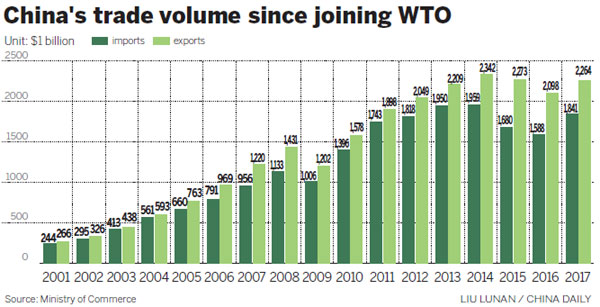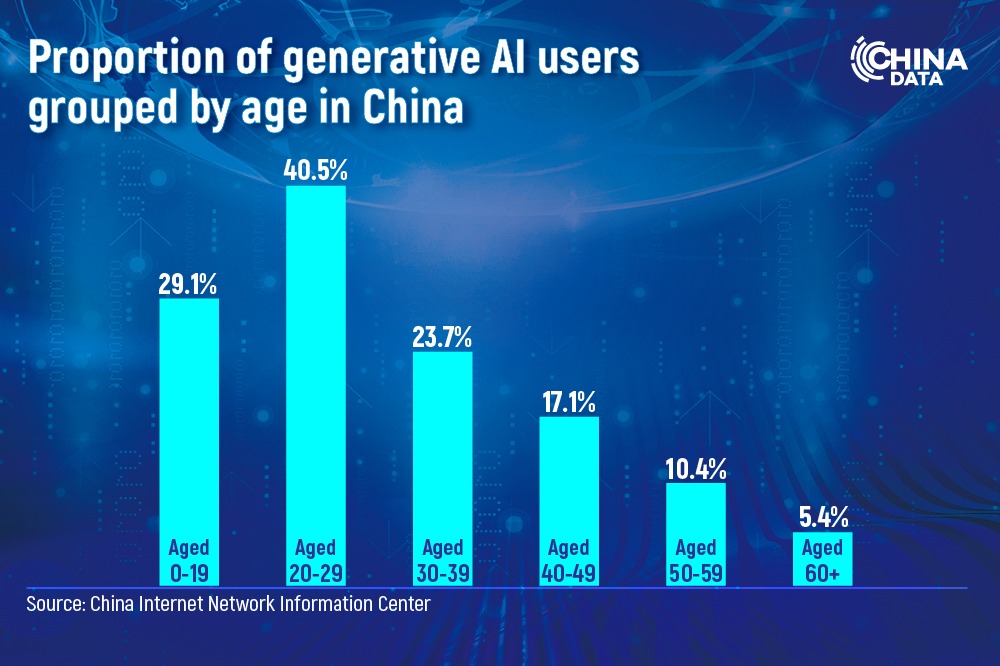China firmly upholds global trade rules


A friend, not a foe
"China has made countless efforts since it joined the WTO in 2001, including removing a wide array of documents, policies and measures inconsistent with WTO rules," said Wei Jianguo, former vice-minister of commerce.
The country has reduced tariffs to levels it had promised before joining the organization, and the reductions have exceeded the previous targets, Wei said.
No WTO member has suffered economically due to China's participation. On the contrary, all of its trading partners in various development stages have benefited greatly, said Wang Shouwen, vice-minister of commerce.
For example, US exports to China surged from $26 billion in 2001 to nearly $150 billion in 2017, as the country became the third-largest market for US exports, up from No 11 in 2001, according to data from the Ministry of Commerce.
According to Effects of China on the Quantity and Quality of Jobs in Latin America and the Caribbean, a report released by the International Labor Organization, China created 1.8 million jobs for the Latin American and Caribbean region from 1990 to 2016.
The country has applied zero tariff treatment on 97 percent of tariff lines to the least-developed nations that have diplomatic relations with China, according to Wang.
"The country has become the biggest export market for these least-developed countries, accounting for 20 percent of their total exports," the vice-minister said. "China has contributed nearly 30 percent on average per annum to global economic growth since 2002."
During the financial crisis, the country's efforts to stabilize the value of the yuan and promote foreign trade further demonstrated its role as a main stabilizer and powerhouse for the world's economy, he said.
"China's accession to the WTO enables the country to make full use of its advantages, and participate in and contribute to the global value chain. It has created goods and job opportunities for the world, and provided the world with more quality goods and services at a reasonable price," said Su Qingyi, a researcher at the Institute of World Economics and Politics at the Chinese Academy of Social Sciences.




































